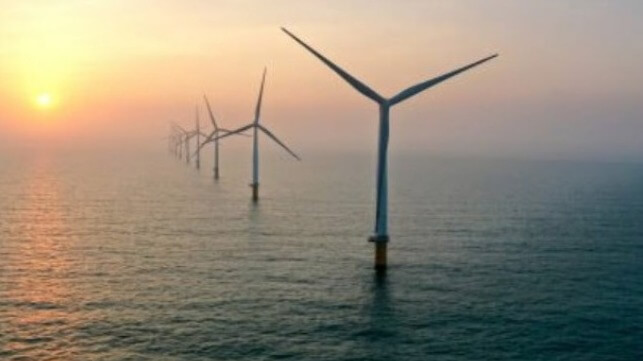More U.S. Wind Farms Terminate Power Agreements Due to Financial Pressures

The U.S. continues to push forward with the permitting process for the development of offshore wind energy resources while evidence continues to mount regarding the changing economics of the sector. Developers for several of the earlier proposed projects that are now in the later stages of permitting have highlighted the mounting financial challenges for their projects saying it would jeopardize their development.
Avangrid, a Connecticut-based company owned by Spain’s Iberdrola Group on Monday confirmed that it has reached its second agreement with regulators to terminate its previously approved Power Purchase Agreements for wind farms it is planning for Connecticut, Massachusetts, and Rhode Island. The company contends this is the fastest path toward developing the wind farms.
The new development comes for the Pack City Wind project, a planned 804 MW wind farm that would be located about 30 miles off the coast of Martha's Vineyard on the Outer Continental Shelf and in the first phase supplying power to Connecticut in the Bridgeport area. The company was awarded the contract for the project in 2019 and in 2020 two regulated electric utilities, Eversource Energy and United Illuminating, entered into the 20-year agreements for the power from the project which was targeted to come online in 2025. The project is projected to supply 14 percent of Connecticut’s electric power needs.
“One year ago, Avangrid was the first offshore wind developer in the United States to make public the unprecedented economic headwinds facing the industry including record inflation, supply chain disruptions, and sharp interest rate hikes, the aggregate impact of which rendered the Park City Wind project unfinanceable under its existing contracts,” the company said in a statement released yesterday. “After exploring all potential solutions to the financial challenges facing the project, and engaging in good-faith and productive discussions with Connecticut state officials regarding these challenges, it is clear the best path forward for Park City Wind is in the termination of the Power Purchase Agreements and a rebid of the project.”
The company said that the agreement with the Connecticut Electric Distribution Companies will allow all parties an opportunity to pursue an expedient path forward. Bloomberg is reporting the company will take a $16 million charge to terminate the agreements.
Earlier this year, Avangrid also reached a similar agreement with the Massachusetts Department of Public Utilities to buy out its power agreements for the Commonwealth Wind project which would also be off Martha’s Vineyard and supply 1.2 GW of power to Massachusetts. The company had been in a public battle with the regulators since late 2022 when it said rising interest rates, inflation, supply chain problems, and the war in Ukraine had all conspired to make the project uneconomical under the previous agreements. They called for renegotiating the power agreements while Massachusetts wanted the project to proceed as agreed.
Avangrid has agreed to pay $48 million in penalties to Massachusetts for the termination of the power agreements. The plan calls for the rebidding of the project.
Similarly, yesterday the Massachusetts DPU agreed to the second walkaway this time for the SouthCoast Wind Project (formerly Mayflower Wind), which is to be developed through a joint venture between Shell New Energies and Ocean Winds North America (a joint venture between EDP Renewables and ENGIE). Also located off Martha’s Vineyard the full offshore wind lease area has a capacity of 2.4 GW, split into two phases that are both to supply power to Massachusetts.
The DPU approved a deal that will see SouthCoast pay $60 million in termination fees, which will be rebated to customers. As with the other projects, the plan is to rebid SouthCoast Wind in the future.
These latest walkaways come as other projects are gaining approvals. The Environmental Protection Agency (EPA) announced its approval which will permit Revolution Wind, a 704 MW offshore wind farm that will provide power to Connecticut and Rhode Island being developed by Ørsted and Eversource to move closer to construction.

that matters most
Get the latest maritime news delivered to your inbox daily.
At the same time, the Bureau of Ocean Energy Management (BOEM) plans to release for comment its Draft Environmental Impact Statement on US Wind’s Construction and Operations Plan for the proposed Maryland Offshore Wind Project. Two of the three phases of the project, MarWin and Momentum Wind, have offshore renewable energy certificates from the State of Maryland. When completed it has the potential to provide up to 2.2 GW of power.
Developers have been calling on the U.S. government to take further steps to improve the financial aspects of the development and to amend the terms of the proposed tax incentives to recognize the supply chain and other challenges to proceeding with the developments.
